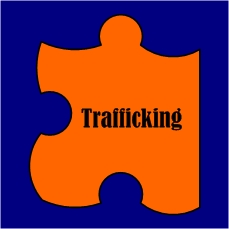Opinion: Banning of Private Adoptions in China

Occasionally, we will link to media opinions on aspects of adoption and child welfare that you may never have thought about. This opinion piece discusses how the ban of private adoptions of abandoned infants is not enough to help children nor quash child trafficking.
We covered the child deaths associated with an unlicensed orphanage in January 2013.
Banning Private Adoption Not Enough to Resolve Issue[Women of China 7/24/13 by Wang Chuanyan; Source banyuetan.org/ Translated and edited by womenofchina.cn] says “Recently, seven of China’s ministries, including the Civil Affairs Ministry, Public Security Ministry and Public Health and Family Planning Commission issued a policy prohibiting any private organizations or individuals from adopting abandoned children on their own. The policy also requires non-government organizations or individuals to cooperate with the local civil affairs departments of governments above county level.
The news has given rise to much public discussion, with some people arguing for and some arguing against it.
The policy aims to regulate the present disorder when it comes to adoption of abandoned children and to crack down on child trafficking. Despite the good intentions of the policy, it is clear that simply issuing a government policy is not enough to resolve the issue.
Private adoption of abandoned children by social organizations and individuals is not completely at odds with putting these children into state orphanages. The key here is establishing a good communication channel, mutual interaction and an effective response system between the two ways of adoption.
State orphanage care and private adoption of abandoned babies can co-exist to great benefit. While government-funded organizations should play the main role, private adoption can also lighten the burden on these organizations.
However, those who believe this must also take into consideration the fact that many who privately adopt abandoned children do not have the resources to take care of them. A sad example of this is the fire that broke out at a private orphanage last year in Lankao County, central China’s Henan Province, where seven children died at the house of Yuan Lihai, who had informally adopted them.
The incident has placed Yuan in the spotlight as a controversial figure because although she took in the children out of love and compassion, she was unable to provide them with safe living conditions.
In actual fact, there are many people like Yuan, who are not rich enough to provide good living conditions for adopted children and not well-educated enough to know the state’s policies on adoption.
For these people, what should they do if they encounter abandoned children?
According to the policy, private adoption organizations should either cooperate with civil affairs departments or sign agreements with civil affairs departments to help secure the children’s welfare. Both require that the private adoption organizations should “reach the basic standards on social welfare organizations set by the government, including the basic conditions on living, medicine, and education; the provision of service providers, and meeting the standard on public security and health.”
However, most private adoption organizations, especially individual adopters, are unable to meet these standards. For many, the only choice is to send the children to state orphanages.
Which brings us to the central question: If all privately adopted abandoned children were transferred to state orphanages, would they be afforded the care they need by a system that is already strained? And if these government-funded organizations prove able to take in these children and care for them, what then, have they been doing all this while? Why have they not taken on the responsibility before?
Furthermore, the policy creates a moral conundrum: if helping these abandoned children when one does not have the resources to do so goes against the policy, doesn’t not helping go against one’s conscience as a human being?
Who is responsible for the safety of these children while they are being processed into the system and sent to state orphanages? If anything should happen to the children, who should take responsibility?
These are all issues that policy-makers should consider when making policies that have a moral aspect to them.
As such, it’s clear that regulating private adoption in China is not as simple as issuing a single policy. It is only when policy-makers pull back and look at the big picture and consider the social effects of their policies can this and other issues be better managed. ”
REFORM Puzzle Piece


Recent Comments